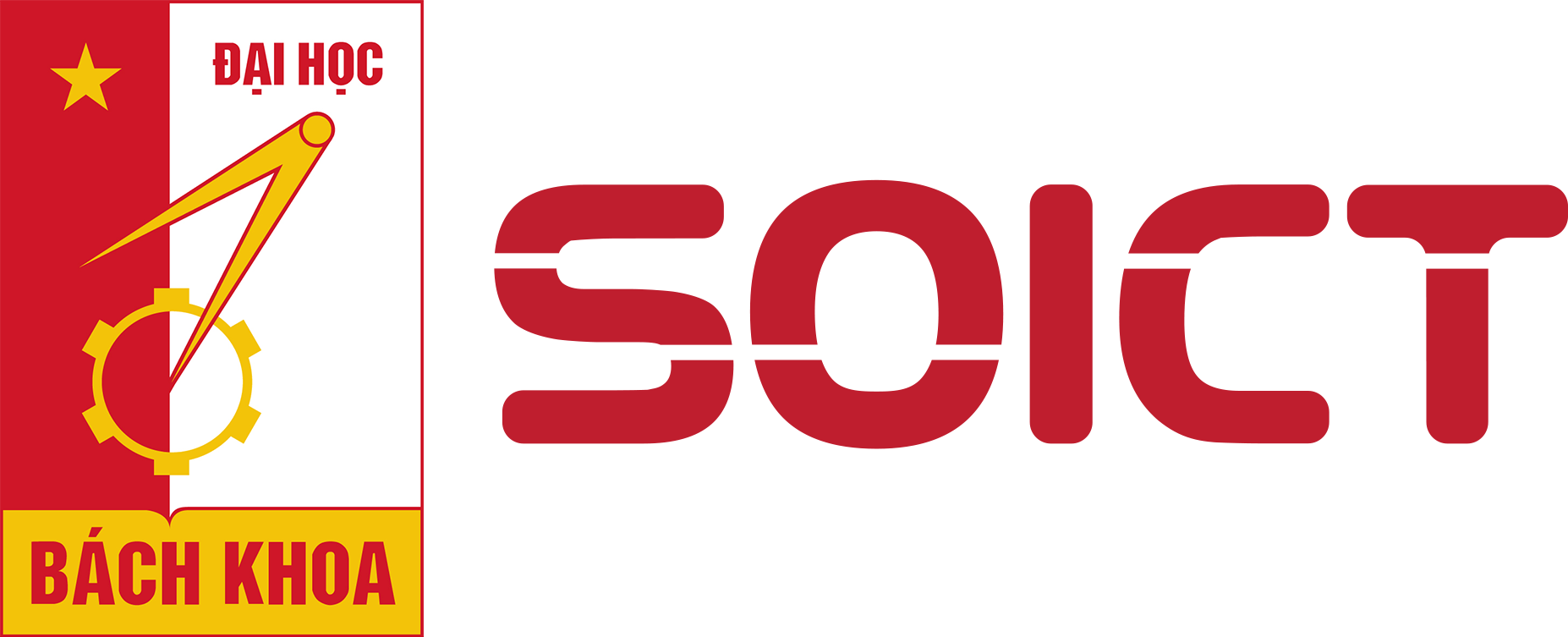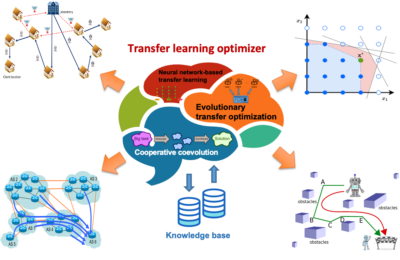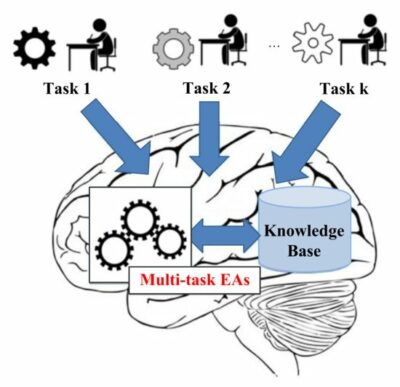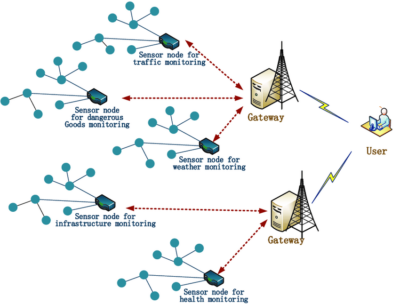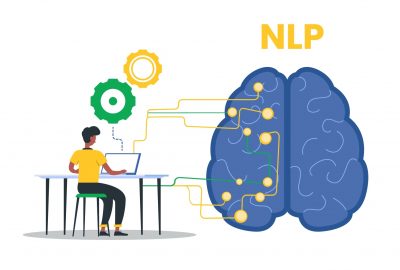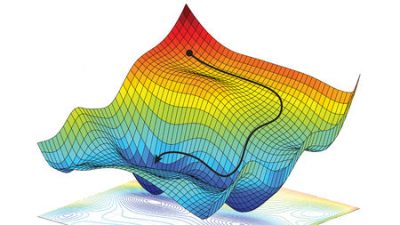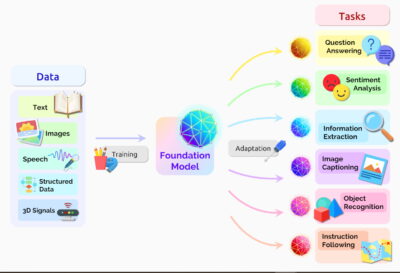Introduction
In our daily lives, we benefit from the application of Optimization theories and algorithms. They are used, for example, by IoT devices, GPS systems, by shipping companies delivering packages to our homes, by financial companies, airline reservations systems, etc. Optimization is a discipline that solves a great variety of real-world applied problems in diverse areas: transportation, supply chain, manufacturing, finance, government, economics, etc.
Our research group consists of academic staffs in the School of Information and Technology (SoICT) who are actively involved in teaching, supervising and researching across a wide range of topics and areas in Optimization. Our research focuses on the development, analysis and implementation of advanced theories and algorithms to provide high value solutions to complex real-world problems and challenges. We also have research collaboration with other optimization groups of Nanyang Technological University, Singapore Management University (Singapore) and University of Sydney, La Trobe University, University of Technology Sydney (Australia).
See the slides here for more detail.
Contact: Assoc. Prof. Huynh Thi Thanh Binh, Email: binhht@soict.hust.edu.vn
Research Directions
- Logistics and transportation optimization: Transportation is a very relevant sector for contemporary society, both for companies and individuals. Every day, thousands types of commodities such as fresh food, frozen or dairy products, small to large packages, etc. are shipped between locations within or outside cities.Thanks to the development of digitization and automation technologies, in the past few years, we have seen an increase in the number of logistics companies. Their main goal is to transport different kinds of goods domestically and internationally based on customer needs. They thus all share the same challenges: how to manage limited fleets of vehicles, handle warehouses, mange inventory, etc. to make profit as much as possible, while enhancing customer satisfaction, improving working conditions for drivers, reduce carbon footprint, etc. Given these presence of multiple business constraints, our research is to analyze, design and develop planning and optimization methods to create better decision support to companies within the supply chains, transport sector.
- Multitask learning, transfer learning: Inspired by the human solving ability that routinely uses a pool of knowledge drawn from past experiences whenever faced with a new task, Transfer Learning and Multitask Learning have gained much attention within the Artificial Intelligence community. Besides, real-world problems seldom exist in isolation. For example, many routing problems are repetitive or and network designs share common characteristics or support each other. Knowledge from solving one problem may help solve other problems more efficiently. Transfer Learning aims at solving problems that occur sequentially, and the knowledge obtained when tackling preceding tasks is employed as external information when dealing with new problems/instances. In contrast, Multitasking Learning tackles multiple different tasks simultaneously by dynamically online exploiting synergies existing among them. Viewed from different angles, Transfer Learning and Multitask Learning can be applied to various optimization fields, ranging from theory to practice. Our work focuses on designing novel multitasking algorithms that can simultaneously solve a massive number of tasks. Besides, we will investigate these approaches to solve real-world optimization problems.
- Multi-domain network design optimization: A multi-domain network consists of multiple domains, in which each domain is administrated as a unit with the same rules and procedures. Routing is the fundamental problem showing the path of resources in the network. In a communication network, efficient routing provides more control to the operators and enables the delivery of services with quality of service across domain boundaries. In Military communication, various elements of military forces, such as the army, navy, air forces, and special units, cooperate to achieve specific tactical goals. Each one of these organizations has its network structure in one or more domains. Besides, freight routing planning aims at assigning optimal routes to move commodities from their origins to the respective destinations through the transportation networks. Although it is a short-term decision making in the transportation network design, freight routing planning is oriented directly on satisfying the customers’ demand, and its performance determines the competitiveness of a transportation carrier or a third-party logistics company in the freight market.
- Charging schedule optimization in Wireless Rechargeable Sensor Networks: Sensor nodes in conventional Wireless Sensor Networks are often powered by batteries, thus, they can only operate for a limited period of time depending on battery capacities. When some sensors deplete their energy, the network would become fragmented and the data from some parts of the sensing field can no longer be extracted. Wireless energy charging was proposed as a promising technique to address the energy provisioning problem. However, this technology also brings new challenges, including charging scheduling and energy forecasting for constructing an effective charging schedule. Solving these problems is of great significance, as the first step to exploiting the wireless charging technology and providing sustainable power for sensor networks. It can be applied in the harshness of environments, such as earthquakes, soil monitoring, large scale wireless sensor networks.
- Path planning with energy optimization for mobile robots: Mobile robots have become more commonplace in commercial and industrial settings. Hospitals have been using autonomous mobile robots to transfer materials. Warehouses have installed mobile robotic systems to efficiently move materials from stocking shelves to order fulfillment zones. Mobile robots are also found in industrial, military and security settings. To power a mobile robot usually use batteries. Battery power is limited. In order for the robot to work effectively, it is necessary to schedule the optimal robot path to optimize energy; need to predict exhausted energy to plan charging in time.
- Optimization techniques for Credit scoring problem: Credit scores are the most commonly used tool by financial institutions for determining consumer credit risk. In the last few decades, quantitative methods known as credit scoring models have been developed for the credit granting decision. The objective of quantitative credit scoring models is to assign credit applicants to one of two groups: a “good credit” group that is likely to repay the financial obligation, or a “bad credit” group that should be denied credit because of a high likelihood of defaulting on the financial obligation. However, quantitative methods have some limitations, such as they can not consider additionally constraints defined by risk management experts, they base completely on training dataset. This leads to our research direction, how to apply optimization techniques to build credit scoring models (non-parametric approaches), which not only are more accurate, but also can consider side constraints defined by users. Potential optimization techniques in this research are both complete search approaches (Integer Programming, Constraint Programming) and incomplete search approaches (Local Search, Meta-Heursitic).
- Resources management in the cloud-fog environment optimization: In recent years, the Internet of Things (IoT) has been one of the most popular technologies that facilitate new interactions among things and humans to enhance the quality of life. With the rapid development of IoT applications, fog computing is an emerging distributed computing paradigm that has recently attracted the attention of both the industry and academic community for guaranteeing the requests of computational applications in IoT smart devices. In the fog environment, IoT applications are executed by the intermediate computing nodes in the fog, as well as the physical servers in cloud data centers. Fog computing contributes to processing large amounts of data generated in smart transportation, smart grid, smart health, smart home, and smart home, and other latency-sensitive applications. On the other hand, due to the resource limitations, resource heterogeneity, dynamic nature, and unpredictability of the fog environment, it necessitates resource management issues as one of the challenging problems to be considered in the fog landscape. To solve the resource management challenge, we adopt several promising approaches such as heuristics, deep learning, reinforcement learning, …
- Graph Neural Network for combinatorial optimization: Combinatorial optimization (CO) aims to find optimal configurations in discrete spaces where exhaustive enumeration is intractable. In general, the CO problems can be divided into three subclasses: Mixed Integer Program (MIP), Satisfiability Problem (SAT), and Constraint Program (CP). Many real world problems with high applicability can be formulated as CO problems, especially MIP problems such as Traveling Salesman Problem, Set Covering, Maximal Independent Set, etc. Current SOTA CO solvers often use sophisticated heuristics to solve hard CO problems. However, these solvers will try to solve the new issue from scratch without utilizing knowledge from previous problems. On the other hand, most CO problems have many common elements. So can we take advantage of the common ground between these problems? Obviously, machine learning can! We formulate CO problems with graph representation and use the Graph Neural Network to approximate the distribution of each CO problem. This can support traditional algorithms, speeding up the solving time with a data-driven approach.
- Maximizing Wireless Sensor Network Coverage: Coverage which is one of the most important performance metrics for sensor networks reflects how well a sensor field is monitored. Individual sensor coverage models are dependent on the sensing functions of different types of sensors, while network-wide sensing coverage is a collective performance measure for geographically distributed sensor nodes. A major problem when designing these networks is deploying sensors such that their area coverage is maximized. Given a number of sensors with heterogeneous sensing ranges, the problem of coverage maximization is known to be NP-hard. As such, our main goal is to analyze and develop novel methods that rely on metaheuristic algorithms to support sensor network design/deployment with realistic requirements.
Research Problems
- Optimization in the transportation, drone problems: Research optimization algorithms in the Trucks and Drones delivery problem, Door to Door sampling services, Multi-echelon distribution system in city logistics; Transportation Logistics Networks; minimum routing cost problems in the multi-domain networks;
- Multi-objective optimization, multi-tasking evolutionary algorithms: Research and application of multi-objective, multi-tasking evolutionary algorithms in solving interdisciplinary optimization problems.
- Multi-domain network design optimization: Develop multitasking evolutionary and heuristic algorithms to find the shortest path with uniqueness constraints and efficient network structures in the multi-domain network.
- Charging schedule optimization:study wireless charging models to prolong the life of the network; Propose algorithms to optimize the cycle of the charging robot, optimize the charging stop time; energy prediction to plan charging on time.
- Path planning with energy optimization for mobile robots: Propose optimization algorithms to find shortest path, minimizing energy for mobile robots; predict energy to plan charging in time.
- Optimization techniques for Credit scoring problem: Study optimization techniques – complete search approaches (Integer Programming, Constraint Programming) and incomplete search approaches (Local Search, Meta-Heursitic) to solve credit score problem.
- Reinforcement Learning for Combinatorial Optimization: Design Reinforcement Learning frameworks to solve complex combinatorial optimization instead of using traditional optimization algorithms.
- Resources management in the cloud-fog environment optimization: Propose heuristics, deep learning, reinforcement learning to solve resources management in fog computing.
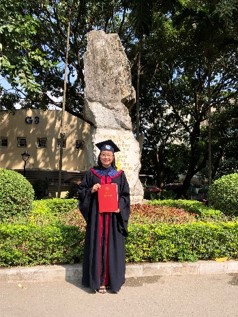
Dr. Hoang Thi Diep
Post-doc

Dr. Pham Dinh Thanh
Past PhD students (researcher)

Dr. Nguyen Thi My Binh
Past PhD students (researcher)
Projects and Solutions
Latest Publications
Publications in 2025
- Hai-Anh Tran; Cong-Son Duong; Trong-Duc Bui; Van Tong; Huynh Thi Thanh Binh. GAMR: Revolutionizing Multi-Objective Routing in SDN Networks With Dynamic Genetic Algorithms. IEEE Transactions on Emerging Topics in Computational Intelligence. 15/02/2025
- Van Tong; Cuong Dao; Hai Anh Tran; Duc Tran; Huynh Thi Thanh Binh; Nam-Thang Hoang. Encrypted Traffic Classification Through Deep Domain Adaptation Network With Smooth Characteristic Function. IEEE Transactions on Network and Service Management. 331-343. 24/01/2025
- Ban Hà Bằng, Phạm Đăng Hải. A multi-population multi-tasking Tabu Search with Variable Neighborhood Search algorithm to solve post-disaster clustered repairman problem with priorities. Applied Soft Computing. 16/12/2024
Publications in 2024
- Hung Tran Huy, Nguyen Thi Tam, Huynh Thi Thanh Binh, Le Trong Vinh. Two-stage metaheuristic for reliable and balanced network function virtualization-enabled networks. Soft Computing. 30/12/2023
- Trinh Van Chien; Ngo Tran Anh Thu; Nguyen Hoang Lam; Huynh Thi Thanh Binh; Nguyen Thi My Binh. On the Performance of User Association in Space-Ground Communications with Integer-Coded Genetic Algorithms. The Genetic and Evolutionary Computation Conference (GECCO). 1-8. Melbourne, Australia. 14/07/2024
- T. K. Lai, and I. L. Ngo. An investigation on the thermo-electrohydraulic performance of novel ECF micro-pump.. International Journal of Heat and Mass Transfer. 29/09/2024
- Trinh Van Chien, Bui Trong Duc, Ho Viet Duc Luong, Huynh Thi Thanh Binh, Hien Quoc Ngo, Symeon Chatzinotas. Active and Passive Beamforming Designs for SER Minimization in RIS-Assisted MIMO Systems. IEEE Transactions on Wireless Communications. 18838-18854. 02/10/2024
- Trinh Van Chien, Bui Trong Duc, Ho Viet Duc Luong, Huynh Thi Thanh Binh, Hien Quoc Ngo, Symeon Chatzinotas. Solving Indefinite Communication Reliability Optimization for RIS-Aided Mobile Systems by an Improved Differential Evolution. GECCO '24 Companion: Proceedings of the Genetic and Evolutionary Computation Conference Companion. 651-654. Melbourne, Australia. 14/07/2024
- Bui Quoc Trung, Vuong Hoang Minh, Nguyen Thi Hoai Linh, Bui Thi Mai Anh. A Novel Dynamic Programming Method for Non-Parametric Data Discretization. Intelligent Information and Database Systems - ACIIDS 2024. 111-120. UAE. 15/04/2024
- Sikandar Ali Qalati, MengMeng Jiang, Samuel Gyedu, and Emmanuel Kwaku Manu. Do Strong Innovation Capability and Environmental Turbulence Influence the Nexus Between Customer Relationship Management and Business Performance?. Business Strategy and the Environment. 02/07/2024
- T. K. Lai, K. D. Tran, and I. L. Ngo. A numerical study on the thermo-electrohydrodynamic performance of ECF micro-pumps. Sustainability and Emerging Technologies for Smart Manufacturing. 29/04/2024
- Do Tuan Anh, Huynh Thi Thanh Binh, Ban Ha Bang, Nguyen Duc Thai, Phung Bao Ha. A multi-population multi-tasking variable neighborhood search algorithm with diversity enhancements for inter-domain path computation problem. Swarm and Evolutionary Computation. 1-15. 01/02/2024
- Nguyễn Bình Long, Đỗ Tuấn Anh, Huỳnh Thị Thanh Bình, Ban Hà Bằng. An online transfer learning based multifactorial evolutionary algorithm for solving the clustered Steiner tree problem. Knowledge-Based Systems. 26/04/2024
- Ha An Le , Trinh Van Chien , Van Duc Nguyen†,Wan Choi. Channel Analysis and End-to-End Design for Double RIS-Aided Communication Systems with Spatial Correlation and Finite Scatterers. IEEE Conference on Global Communications (GLOBECOM). 1561-1566. 03/08/2023
- Ha Minh Hieu, Phan Duc Hung, Tran Duc Chinh, Van Duc Cuong, Dao Van Tung, Huynh Thi Thanh Binh. Alimentation Deep Multiple Optimal Ant Colony Optimization to solve Vehicle Routing Problem with Time Windows. The Genetic and Evolutionary Computation Conference. 14/07/2024
- JYE Tin, WW Tan, AA Bakar, MS Mahali, FF Lothai, NF Mohammad, SSA Hassan & KF Chin. A Conceptual Design of Sustainable Solar Photovoltaic (PV) Powered Corridor Lighting System with IoT Application. ICREEM 2022. 09/03/2024
- Do Tuan Anh a, Huynh Thi Thanh Binh a, Do Luong Kien a, Nguyen Hoang Long a, Tran Cong Dao a b, Ha-Bang Ban a. Node-depth based Genetic Algorithm to solve Inter-Domain path computation problem. Knowledge-Based Systems. 04/11/2023
- Van Son Nguyen, Quang Dung Pham, Thanh Trung Huynh. Modelling and solving a real‑world truck‑trailer scheduling problem in container transportation with separate moving objects. OPSearch. pages 628–661. 28/11/2023
- Ha-Bang Ban, Huynh Thi Thanh Binh, Tuan Anh Do, Cong Dao Tran, Su Nguyen. A hybrid and adaptive evolutionary approach for multitask optimization of post-disaster traveling salesman and repairman problems. Computers & Operations Research. 1-20. 12/03/2024
- Le Tien Thanh, Ta Bao Thang, Le Van Cuong, Huynh Thi Thanh Binh. Multitask Augmented Random Search in deep reinforcement learning. Applied Soft Computing Journal. 04/04/2024
- Nguyen Thi Tam, Le Huy Duong , Huynh Thi Thanh Binh, Le Trong Vinh. Subswarm-guided ant colony optimization with enhanced pheromone update mechanism and beam search for VNF placement and routing. Applied Soft Computing. 06/01/2024
- Quang Truong Vu, Phuc Tan Nguyen, Thi Hanh Nguyen, Thi Thanh Binh Huynh, Trinh Van Chien, Mikael Gidlund. Striking the Perfect Balance: Multi-Objective Optimization for Minimizing Deployment Cost and Maximizing Coverage with Harmony Search. Journal of Network and Computer Applications. 104006. 23/08/2024
- Sikandar Ali Qalati, Domitilla Magni, and Faiza Siddiqui. Senior Management's Sustainability Commitment and Environmental Performance: Revealing the Role of Green Human Resource Management Practices.. Business Strategy and the Environment. 02/08/2024
- T. K. Lai, and I. L. Ngo. A new design and optimization of VD-ECF micro-pump: Advancements in electrohydraulic performance. Physics of Fluids. 29/07/2024
- Nguyen Thi Tam, Tran Ho Khanh Ly, Bui Trong Duc, Tran Huy Hung, Huynh Thi Thanh Binh. Multi-Objective Virtual Network Functions Placement and Traffic Routing Problem. 2024 IEEE Congress on Evolutionary Computation (CEC). 01-08. 30/06/2024
- Tung Nguyen, Tung Pham, Linh Ngo Van , Ha-Bang Ban , Khoat Than. Out-of-vocabulary handling and topic quality control strategies in streaming topic models. Neurocomputing. 128757. 19/10/2024
- Nguyen Thi My Binh, Huynh Thi Thanh Binh, Ho Viet Duc Luong, Nguyen Tien Long, Trinh Van Chien. An efficient exact method with polynomial time-complexity to achieve k-strong barrier coverage in heterogeneous wireless multimedia sensor networks. Journal of Network and Computer Applications. 19/08/2024
- T. K. Lai, and I. L. Ngo. An investigation on the electrohydraulic performance of novel ECF micro-pump with NACAshaped electrodes. Theoretical and Computational Fluid Dynamics. 29/02/2024
- Tran Thi Cam Giang, Dao Tung Lam , Huynh Thi Thanh Binh, Dinh Thi Ha Ly, Do Quoc Huy. BWave framework for coverage path planning in complex environment with energy constraint. Expert Systems with Applications. 123277. 16/01/2024
- Trinh Van Chien; Bui Trong Duc; Ho Viet Duc Luong; Huynh Thi Thanh Binh; Hien Quoc Ngo; Symeon Chatzinotas. Solving Indefinite Communication Reliability Optimization for RIS-Aided Mobile Systems by an Improved DE. The Genetic and Evolutionary Computation Conference (GECCO). 1-4. Melbourne , Australia. 14/07/2024
- Ban Hà Bằng, Phạm Đăng Hải. Metaheuristic for solving the Deliveryman Problem with Drone. Computing and Informatics. 1184–1212. 08/12/2023
- Binh Minh Nguyen; Thieu Nguyen; Quoc-Hien Vu; Tran Huy Hung; Tran Hoang Hai; Huynh Thi Thanh Binh; Van-Dang Tran. Dholes Hunting-A Multi-Local Search Algorithm Using Gradient Approximation and Its Application for Blockchain Consensus Problem. IEEE Access. 93333-93349. 11/06/2024
- Thi-Mai-Anh Bui, Van-Tri Do, Minh Vu Le, Quoc-Trung Bui. Dynamic Difficulty Coefficient in Search-Based Software Testing: Targeting to Hard Branch Coverage. Genetic and Evolutionary Computation Conference - GECCO 2024. 791-794. Melbourne. 14/07/2024
- Trinh Van Chien, Bui Trong Duc, Ho Viet Duc Luong, Huynh Thi Thanh Binh, Hien Quoc Ngo, Symeon Chatzinotas. Active and Passive Beamforming Designs for Communication Reliability in RIS-Assisted MIMO Systems. IEEE Transactions on Wireless Communications. 18838-18854. 02/10/2024
Publications in 2023
- Nguyễn Đức Ca, Phan Thị Thu, Hoàng Thị Minh Anh, Phạm Ngọc Dương, Nguyễn Hoàng Giang, Nguyễn Lệ Hằng. Nâng cao hiệu quả quản trị đại học trong bối cảnh đổi mới giáo dục tại Việt Nam. Tạp chí khoa học giáo dục Việt Nam. 14/03/2023
- Bùi Thị Mai Anh, Dương Việt Anh, Bùi Quốc Trung. A Filter Approach Based on Binary Integer Programming for Feature Selection. RIVF 2022. 677-682. Ho Chi Minh City. 20/12/2022
- Do Tuan Anh, Huynh Thi Thanh Binh, Nguyen Duc Thai, Pham Dinh Thanh. A Particle Swarm Optimization and Variable Neighborhood Search based multipopulation algorithm for Inter-Domain Path Computation problem. Applied Soft Computing Journal. 1-17. 20/01/2023
- Ha An Le, Trinh Van Chien, Van Duc Nguyen, Wan Choi. Double RIS-Assisted MIMO Systems Over Spatially Correlated Rician Fading Channels and Finite Scatterers. IEEE Transactions on Communications. 4941-4956. 13/05/2023
- Thi Quynh Mai Banh, Trinh Van Chien, Thi Hanh Nguyen, Huynh Thi Thanh Binh. UAV Path Planning for Backscatter and Cache-aided Wireless Power System Under Imperfect CSI. ACM International Symposium on Information and Communication Technology (SOICT), 2023. 319-326. Ho Chi Minh city. 07/12/2023
- Vu Hoang Long, Tran Quang Anh, Do Bao Son, Ta Huu Binh, Binh Minh Nguyen, Huynh Thi Thanh Binh. GAPRO: An Adaptive User-centric Resource Allocation and Task Offloading Strategy for Multi-access Edge Computing. SOICT '23: Proceedings of the 12th International Symposium on Information and Communication Technology. 260-267. Ho Chi Minh city, Vietnam. 06/12/2023
- Bui Hong Ngoc, Nguyen Thi Tam, Huynh Thi Thanh Binh, Le Trong Vinh. A phenotype-based multi-objective evolutionary algorithm for maximizing lifetime in wireless sensor networks with bounded hop. Soft Computing. 1-10. 20/06/2023
- Ban Hà Bằng, Nguyễn Hồng Phương, Phạm Đăng Hải. Hybrid Variable Neighborhood Search for Solving School Bus-Driver Problem with Resource Constraints. Computer Science. 01/10/2023
- Trinh Van Chien, Cuong V. Le, Huynh Thi Thanh Binh, Hien Quoc Ngo, Symeon Chatzinotas. Phase Shift Design for RIS-Aided Cell-Free Massive MIMO Using Improved Differential Evolution. IEEE Wireless Communications Letters. 1499 - 1503. 16/05/2023
- Sikandar Ali Qalati, Belem Barbosa, and Blend Ibrahim. Factors influencing employees’ eco-friendly innovation capabilities and behavior: the role of green culture and employees’ motivations. Environment, Development and Sustainability. 02/10/2023
- Pham Phu Manh; Tran Thi Hue; Huynh Thi Thanh Binh; Nguyen Khanh Phuong. The min-timespan parallel technician-and-drone scheduling in door-to-door sampling service system. 2022 IEEE 9th International Conference on Data Science and Advanced Analytics (DSAA). 1-10. Shenzhen, China. 13/10/2022
- Tran Cong Dao, Nguyen Thi Tam, Nguyen Quang Quy, Huynh Thi Thanh Binh. An energy-efficient scheme for maximizing data aggregation tree lifetime in wireless sensor network. Journal of Ambient Intelligence and Humanized Computing. 12329-12344. 02/05/2023
- Bùi Thị Mai Anh, Đỗ Văn Trị, Bùi Quốc Trung. A Novel Fitness Function for Automated Software Test Case Generation Based on Nested Constraint Hardness. GECCO 2023. 11-14. Lisbon, Portugal. 15/07/2023
- Nguyễn Viết Chính, Bùi Thị Mai Anh, Nguyễn Mạnh Cường, Phạm Quang Dũng, Bùi Quốc Trung. Metaheuristic for a soft-rectangle packing problem with guillotine constraints. SOICT 2023. 715-722. Ho Chi Minh City. 07/12/2023
- Do Tuan Anh , Phung Bao Ha , Nguyen Thai Ha , Do Tien Dzung , Ban Ha Bang , Pham Dang Hai. A Monte Carlo Tree Search with Ant Colony Optimization for Inter-domain Path Computation Problem. SOICT 2023. 671–678. 07/12/2023
- Cong Dao Tran , Anh Do Tuan , Huynh Thi Thanh Binh , Anh Do Duc , Bang Ban Ha , Su Nguyen Phan Bach. MNDE: Node-depth encoding can do better in evolutionary multitask algorithms. Proceedings of the Companion Conference on Genetic and Evolutionary Computation. 251-254. 15/07/2023
- Ban Hà Bằng, Phạm Đăng Hải. Solving optimization problems simultaneously: the variants of the traveling salesman problem with time windows using multifactorial evolutionary algorithm. PeerJ Computer Science. 1-40. 28/11/2022
- Nguyen Thi Hanh; Nguyen Van Son; Huynh Thi Thanh Binh; Ban Ha Bang; Trinh Van Chien; Huynh Công Phát; Nguyễn Hữu Nhật Minh. An Improved Genetic Algorithm for Bi-Level Multi-Objective Q-Coverage in Directional Sensor Networks. 21st International Symposium on Modeling and Optimization in Mobile, Ad Hoc, and Wireless Networks (WiOpt). 24/08/2023
- Tran Cong Dao, Nguyen Thi Tam, Huynh Thi Thanh Binh. Node depth representation-based evolutionary multitasking optimization for maximizing the network lifetime of wireless sensor networks. Engineering Applications of Artificial Intelligence. 05/11/2023
- Tran Thi Cam Giang; Nguyen Tien Dung; Huynh Thi Thanh Binh; Do Quoc Huy; Mac Thi Thoa. Wave Environment Decomposition with Adaptive Tri-Objective Particle Swarm Optimization for Mobile Robot Path Planning. 2022 IEEE Symposium Series on Computational Intelligence (SSCI). 990-997. Singapore. 04/12/2022
- Nguyen Thi Hanh; Huynh Thi Thanh Binh; Nguyen Quang Huy; Nguyen Van Thanh; Banh Thi Quynh Mai. Node placement optimization under K-Coverage and K-Connectivity constraints in wireless sensor networks. 2022 IEEE Symposium Series on Computational Intelligence (SSCI). 8. 04/07/2022
- Sikandar Ali Qalati, Sonia Kumari, Kayhan Tajeddini, Namarta Kumari Bajaj, and Rajib Ali. Innocent devils: The varying impacts of trade, renewable energy and financial development on environmental damage: Nonlinearly exploring the disparity between developed and developing nations. Journal of Cleaner Production. 02/02/2023
- Nguyen Binh Minh; Nguyen Thieu; Vu Quoc Hien; Tran Huy Hung; Vo Hiep; Son Do Bao; Binh Huynh Thi Thanh; Yu Shui; Wu Zongda. A Novel Nature-inspired Algorithm for Optimal Task Scheduling in Fog-Cloud Blockchain System. IEEE Internet of Things Journal. 1-1. 23/06/2023
- Wu Qinqin, Sikandar Ali Qalati, Rana Yassir Hussain, Hira Irshad, Kayhan Tajeddini, Faiza Siddique, Thilini Chathurika Gamage. The effects of enterprises' attention to digital economy on innovation and cost control: Evidence from A-stock market of China. Journal of Innovation & Knowledge. 02/12/2023
- Nguyen Thi Hanh, Huynh Thi Thanh Binh, Nguyen Van Son, Nguyen Thi Trang, Phan Ngoc Lan. Optimizing wireless sensor network lifetime through K-coverage maximization and memetic search. Sustainable Computing: Informatics and Systems. 08/08/2023
- Tuan Anh Do, Ha‑Bang Ban, Thi Thanh Binh Huynh, Minh Tu Le, Binh Long Nguyen. Genetic algorithm based approach to solve the Clustered Steiner Tree Problem. Evolutionary Intelligence. 1-20. 28/03/2023
- Tran Hai Long, Doan Cao Thanh Long, Luong Ngoc Hoang, Huynh Thi Thanh Binh. A Two-Stage Multi-Objective Evolutionary Reinforcement Learning Framework for Continuous Robot Control. GECCO '23: Proceedings of the Genetic and Evolutionary Computation Conference. 577-585. Portugal. 15/07/2023
- Nguyen Thi Hanh, Huynh Thi Thanh Binh, Vu Quang Truong, Nguyen Phuc Tan, Huynh Cong Phap. Node placement optimization under Q-Coverage and Q-Connectivity constraints in wireless sensor networks. Journal of Network and Computer Applications. 27/12/2022
- Nguyen Binh Long, Do Tuan Anh, Ha-Bang Ban, Huynh Thi Thanh Binh. A multipopulation multitasking evolutionary scheme with adaptive knowledge transfer to solve the clustered minimum routing cost tree problem. Information Sciences. 119961. 25/11/2023
- La Van Quan, Nguyen Thi Hanh, Huynh Thi Thanh Binh, Vu Duc Toan, Dang The Ngoc, Bui Thu Lam. A bi-population Genetic algorithm based on multi-objective optimization for a relocation scheme with target coverage constraints in mobile wireless sensor networks. Expert Systems with Applications. 27/12/2022
- Giang Tran Thi Cam, Duc Manh Do, Quoc Huy Do, Thi Thanh Binh Huynh , Thi Ha Ly Dinh. GPU-Based Parallel Path Planning for Mobile Robot Navigation in Dynamic Environments. Soict 2023. 878–885. 07/12/2023
- Ta Huu Binh, Do Bao Son, Hiep Khac Vo, Binh Minh Nguyen, Huynh Thi Thanh Binh. Reinforcement Learning for Optimizing Delay-Sensitive Task Offloading in Vehicular Edge-Cloud Computing. IEEE Internet of Things Journal. 2058-2069. 23/06/2023
- Sikandar Ali Qalati , Belem Barbosa & Shuja Iqbal. The effect of firms’ environmentally sustainable practices on economic performance. Economic. Economic Research-Ekonomska Istraživanja. 02/06/2023
- Bui Quoc Trung, Duong Viet Anh, Bui Thi Mai Anh. A Novel Meta-Heuristic Search Based on Mutual Information for Filter-Based Feature Selection. ACIIDS 2023. 207-219. 24/07/2023
- Do Bao Son, Hiep Khac Vo, Ta Huu Binh, Tran Hoang Hai, Binh Minh Nguyen, Huynh Thi Thanh Binh. Reinforcement-Learning-Based Deadline Constrained Task Offloading Schema for Energy Saving in Vehicular Edge Computing System. 2023 International Joint Conference on Neural Networks (IJCNN). 18/06/2023
- Nguyen Thanh Long, Tran Thi Huong, Nguyen Ngoc Bao, Huynh Thi Thanh Binh, Phi Le Nguyen, Kien Nguyen. Q-learning-based Distributed Multi-Charging Algorithm for Large-scale WRSNs. Nonlinear Theory and Its Applications, IEICE. 18–34. 01/01/2023
- Tan N. Nguyen, Lam-Thanh Tu, Peppino Fazio, Trinh Van Chien, Cuong V. Le, Huynh Thi Thanh Binh, Miroslav Voznak. On the Dilemma of Reliability or Security in Unmanned Aerial Vehicle Communications Assisted by Energy Harvesting Relaying. IEEE Journal on Selected Areas in Communications. 1-16. 09/10/2023
